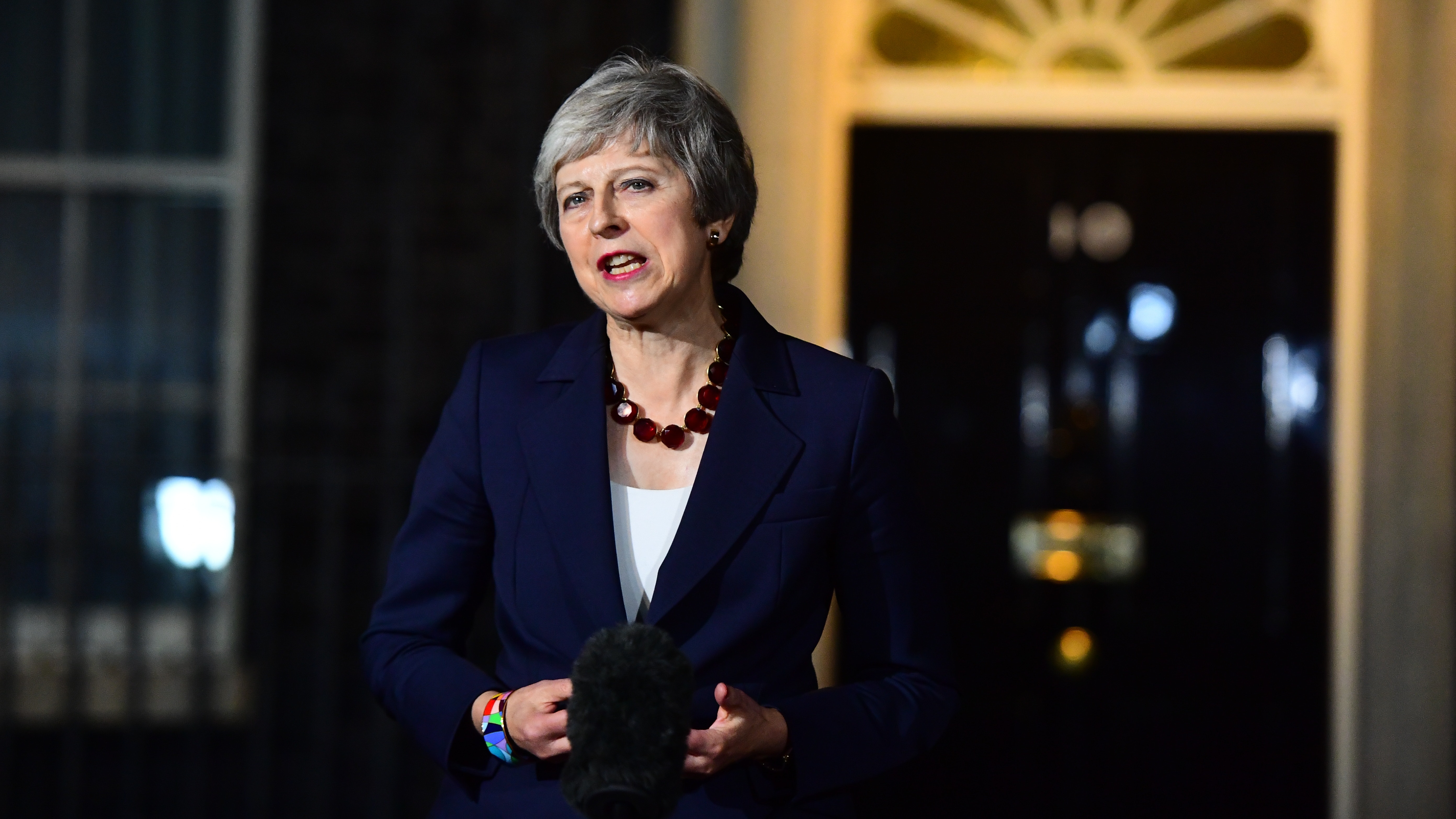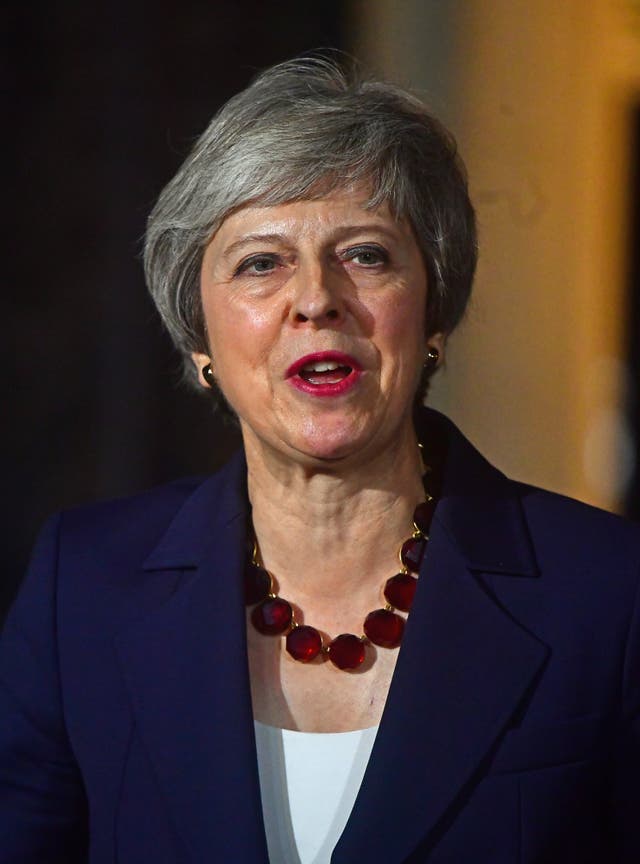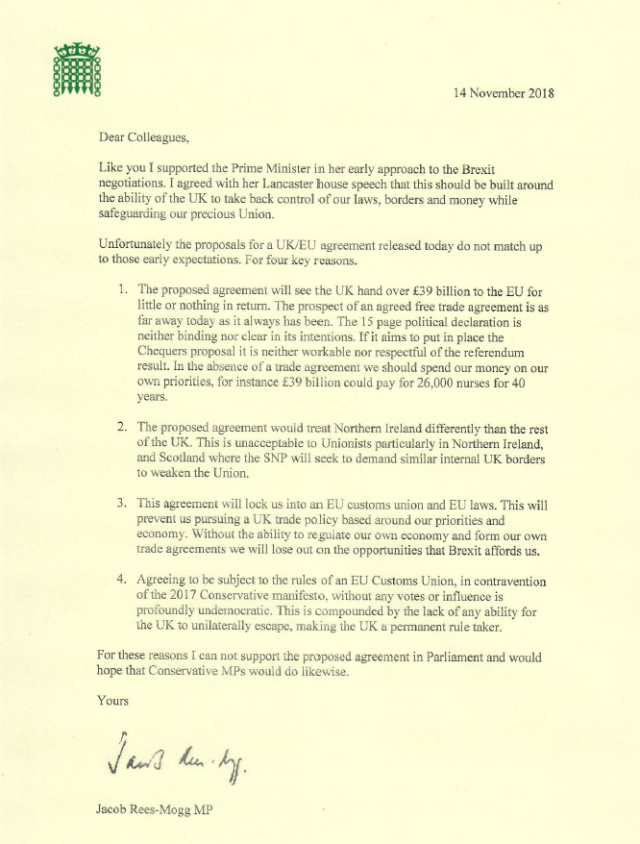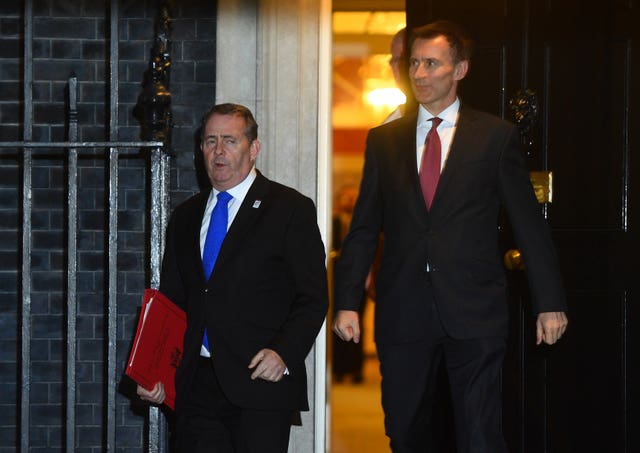
THERESA MAY’S Cabinet has given its blessing to a draft agreement on the terms for Britain’s withdrawal from the European Union, as well as an outline political declaration on the future relationship.
The agreement was announced by the Prime Minister on the steps of 10 Downing Street after a marathon five-hour meeting of Cabinet which stretched on far beyond its expected time.
The move clears the way for a special Brexit summit in Brussels – probably on November 25 – for EU leaders to approve the deal, followed by a crucial Commons vote in which MPs will hold Britain’s future in their hands.
Speaking moments after the meeting’s conclusion, Mrs May acknowledged there would be “difficult days ahead” and announced she will outline the deal to MPs in the House of Commons on Thursday.
And she added: “This is a decisive step which enables us to move on and finalise the deal in the days ahead.
“These decisions were not taken lightly but I believe it is a decision that is firmly in the national interest.”
She concluded: “I firmly believe, with my head and my heart, that this is a decision which is in the best interests of the United Kingdom.”
In response, First Minister Nicola Sturgeon said: “It is obvious that the Prime Minister can barely unite her cabinet on this deal, and it is also increasingly clear that she will struggle to get a majority for it in Parliament.
“In these circumstances it is more important than ever that we are not faced with a false choice between a bad deal and no deal.
“No one should be effectively blackmailed into a choice between the frying pan or the fire.
“This proposed deal would be a bad one for Scotland, taking us out of a single market eight times the size of the UK market alone and posing a huge threat to jobs, investment and living standards.
“If this deal is indeed rejected by Parliament then the UK Government must return to the negotiating table to secure a better one.
“Our bottom line — short of continued EU membership — is continued, permanent membership of the single market and customs union.”
Senior ministers met amid a storm of condemnation for the proposed deal from Brexit-backing Tories, with prominent Leaver Peter Bone warning Mrs May in the House of Commons that she risked losing the support of “many Conservative MPs and millions of voters across the country”.
The chair of the European Research Group of Eurosceptic Tories, Jacob Rees-Mogg, wrote to Conservative MPs calling on them not to support Mrs May’s plan, arguing it would see the UK “hand over £39 billion to the EU for little or nothing in return”.
The deal is “unacceptable to unionists”, will “lock us into an EU customs union and EU laws”, and is “profoundly undemocratic”, said Mr Rees-Mogg.
Meanwhile, Arlene Foster, whose DUP party props up Mrs May’s minority administration in the Commons, warned the PM there would be “consequences” if her deal treats Northern Ireland differently from the rest of the UK.
The level of Brexiteer discontent has raised expectations of further letters of no confidence in Mrs May from Tory MPs, with a total of 48 needed to trigger a vote on her position.
Sources within Westminster said the delivery of letters to the chair of the backbench 1922 Committee Sir Graham Brady was “imminent”.
Mrs May described the debate around the famous Cabinet table as “long, detailed and impassioned”, in an apparent indication that her proposals had come under intense challenge from ministers.
But predicted resignations did not materialise, as Mrs May said ministers had come to a “collective decision” to back the document agreed by UK and EU negotiators in Brussels.
Speaking against the backdrop of boos and shouts from anti-Brexit campaigners on Whitehall, she said: “When you strip away the detail the choice before us is clear – this deal which delivers on the vote of the referendum, which brings back control of our money, laws and borders, ends free movement, protects jobs, security and our Union, or leave with no deal or no Brexit at all.”
The European Commission released the text of the withdrawal agreement – running to 585 pages – on its website as EU chief negotiator Michel Barnier prepared to hold a press conference in Brussels.
Commission president Jean-Claude Juncker wrote to European Council president Donald Tusk to inform him that “decisive progress” had been made in negotiations, allowing him to convene a summit of EU leaders.
The European Parliament’s Brexit co-ordinator, Guy Verhofstadt, welcomed the “positive progress” in negotiations, describing the draft agreement as “a milestone towards a credible and sustainable future relationship between the EU and the UK”.

Enjoy the convenience of having The Sunday Post delivered as a digital ePaper straight to your smartphone, tablet or computer.
Subscribe for only £5.49 a month and enjoy all the benefits of the printed paper as a digital replica.
Subscribe

